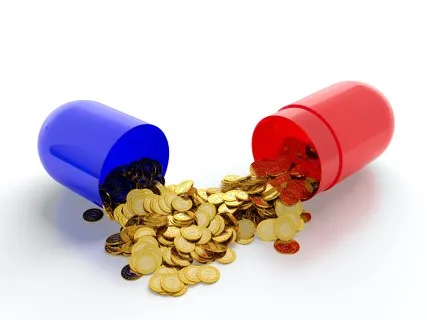
India's pharmaceutical market could hit $32.2b by 2023
Patient demand and chronic therapies continue to be growth drivers for the sector.
India’s pharmaceutical market may reach a value of $32.2b by 2023 which represents a 9.5% compound annual growth rate on the back of an explosion in the access to services within its healthcare system, according to a report by Fitch Solutions.
The report highlighted how a handful of major policy initiatives were announced in the country, such as the Ayushman Bharat-National Health Protection Mission (AB-NHPM) which is aimed at 100 million underprivileged five-member families in the country’s bid to take steps closer towards the sustainable development goal of universal health coverage.
Also read: Public and private sector collaboration key in providing universal health care across APAC
“India represents a significant market with respect to its neighbours on account of its large population,” Fitch Solutions commented. In 2018, the domestic pharmaceutical market was valued at $20.4b, experiencing a 10.9% YoY increase.
The chronic segments were observed to have fared well in 2018, with cardiac therapy witnessing 11.7% growth and the anti-diabetic segment growing 12.9%. Patient demand and chronic therapies continued to be growth drivers for the market, according to the president of the Organisation of Pharmaceutical Producers of India.
However, the domestic pharmaceutical sector continued to face challenges on the back of pharmaceutical regulatory developments and healthcare reforms which brought with it industry-specific risks.
Also read: Thailand's rising pharmaceutical price pressures hamper multinational drugmakers' opportunities
Continued implementation of the government’s repressive drug pricing policy targeting high-value medicines was cited as one of the major threats on the outlook for multinational pharmaceutical firms operating in India’s market. Likewise, poor intellectual property protection increased risks on drugmakers hoping to grow revenues, the report highlighted.
“Posing additional headwinds to drugmakers was the passing of the Goods and Services Tax (GST) bill in July 2017,” Fitch Solutions explained, citing how the tax imposed significant challenges to drugmakers such as the need to reassess existing supply chains and an acute shortage of medicines in pharmacies on the back of stock correction.
Pharmaceutical firms GlaxoSmithKline and Abbott Laboratories pointed out in their respective Q3 2017 earnings that sales were weighed on due to market disruption caused by the implementation of the GST in India. Similarly, local distributors cut down their inventory in the run-up to the tax introduction resulting in industry-wide sales declining 2.4% YoY in July 2017 with weak recovery in the following months, according to data from pharma data platform AIOCD-AWACS.
Also read: Japan's pharmaceutical growth hampered by pricing pressures: Fitch Solutions
Nevertheless, the GST may bring in benefits in terms of compliance, reduced corruption and greater operational efficiency for the pharmaceutical industry, the report noted.
“Pharmaceutical companies will experience reduced manufacturing and transaction costs as well as improved compliance,” Fitch Solutions explained. “This was borne out by data revealing that the domestic pharmaceutical industry witnessed nearly double-digit YoY growth in 2018 after falling to an eight-year low in 2017.”
Over an extended forecast period, Fitch Solutions predicted that the domestic pharmaceutical market could be valued at $52.61b by 2028 as medicine sales could see a 10-year CAGR of 9.4% and 9.9% in local currency and USD terms, respectively.
“We can hope for double-digit growth in 2019,” Fitch Solutions concluded.



















 Advertise
Advertise






